[Event Report] NTU OIA x ECCT LCI Women in ESG Leadership II: Shattering the Ceiling with Impact 永續女力對談 II 活動報導
Photo Gallery: Facebook / LinkedIn
Press Release: NTU OIA Facebook / NTU OIA LinkedIn
Event Review Video
1
The ECCT's Low Carbon Initiative (LCI) and National Taiwan University’s Office of International Affairs (NTU OIA) jointly organised the second in a series of women in ESG leadership forums featuring a panel of five senior female executives from different disciplines. The event was attended by around 200 guests from industry and academia.
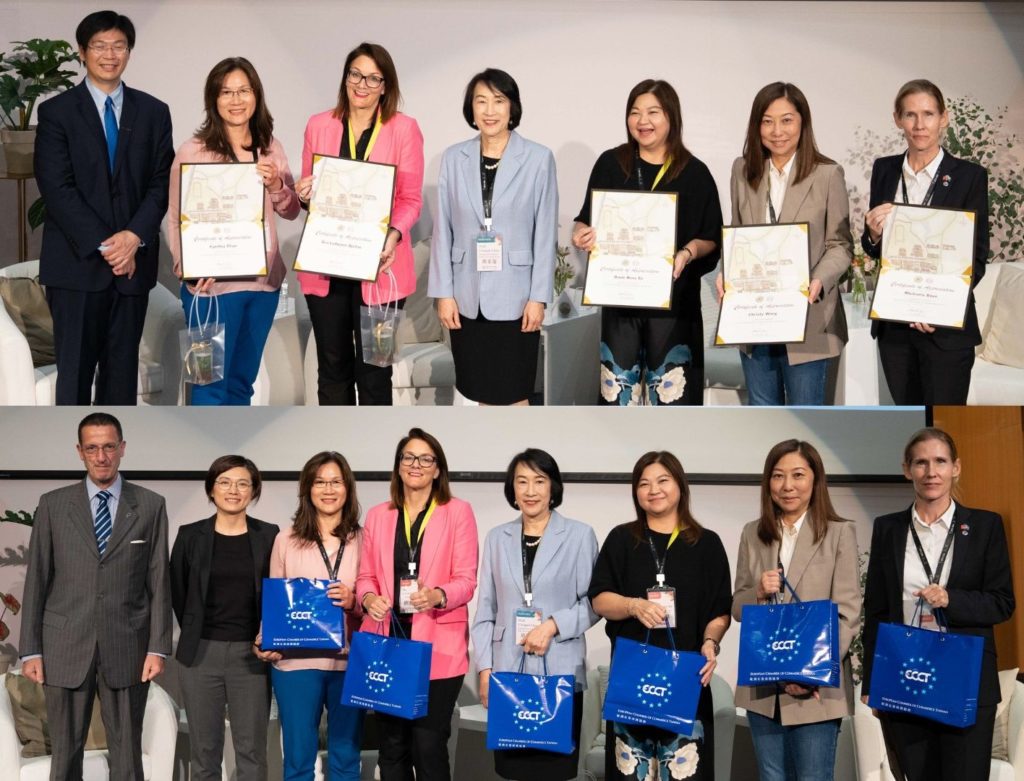
The event host and speakers get the certification of appreciation and gifts from NTU OIA and ECCT LCI.
1
The forum began with opening remarks from Jennifer Wang, LCI Vice Chair (低碳倡議行動副主席 王秀雲) and Professor Lee Jiun-haw, Associate Vice-President for International Affairs at NTU (國立臺灣大學國際事務處副國際長李君浩教授). This was followed by a panel discussion moderated by Dr. Chou Chia-pei, former Executive Vice President & Distinguished Professor in the Department of Civil Engineering (國立臺灣大學前副校長暨土木系周家蓓特聘教授), during which the panelists shared some best practices on how to make a meaningful impact and encourage collaboration towards achieving ESG goals and offered advice to students on how to navigate some of the difficulties that women encounter in their careers.
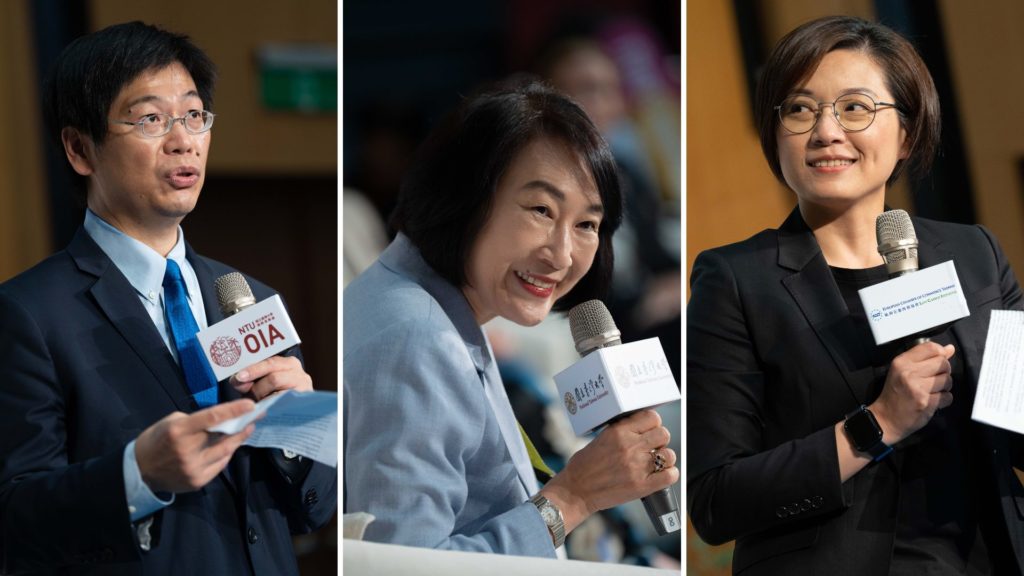
(L-R): Prof. Lee Jiun-haw, NTU Associate Vice President for International Affairs; Dr. Chou Chia-pei, NTU former Executive Vice President & Distinguished Professor in the Department of Civil Engineering; Jennifer Wang, ECCT LCI Vice Chair.
1
The five panellists were: Cynthia Chyn, Head of Public Policy, Amazon Web Services (AWS) Taiwan (臺灣亞馬遜網路服務臺灣首席政策官秦素霞); Eva Leihener-Stefan, Managing Director of L'Oréal Taiwan (臺灣萊雅總裁師逸樺); Boon Huey Ee Director Hong Kong and Macau & General Manager Merck Group Healthcare Taiwan (默克集團默克醫療保健事業體臺灣總經理余文慧); Christy Wang, Chairperson & General Manager of Ørsted Taiwan (沃旭能源臺灣總經理汪欣潔) and Michaela Boye, Managing Director of Scania Group Taiwan (Scania Taiwan總經理柏明希).
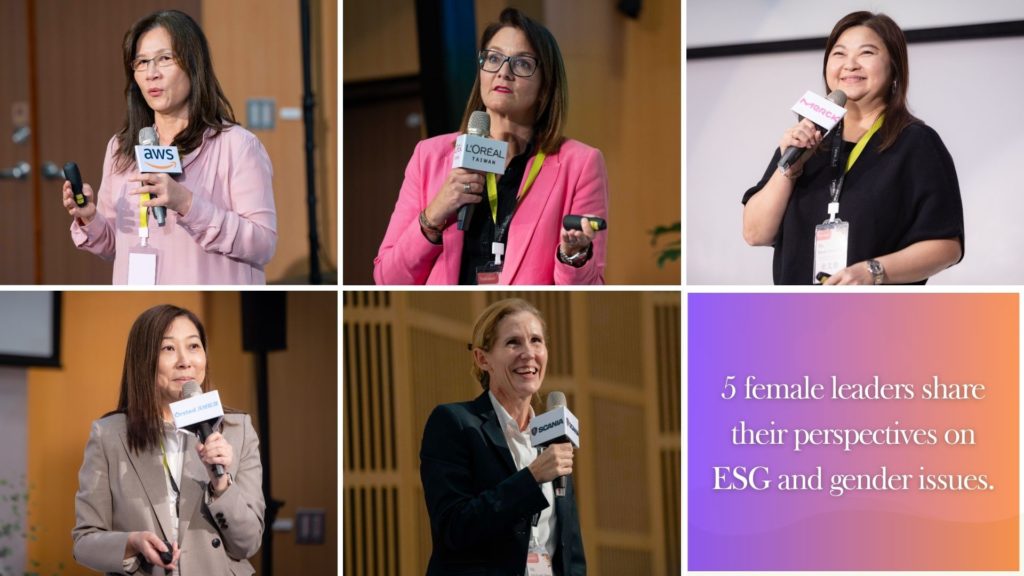
(L-R): Cynthia Chyn, Head of Public Policy, Amazon Web Services (AWS) Taiwan; Eva Leihener-Stefan, Managing Director of L'Oréal Taiwan; Boon Huey Ee Director Hong Kong and Macau & General Manager Merck Group Healthcare Taiwan; Christy Wang, Chairperson & General Manager of Ørsted Taiwan; Michaela Boye, Managing Director of Scania Group Taiwan
1
In her presentation, Cynthia Chyn said that her company had signed a climate pledge to reach net zero by 2040. The company is working with Brazilians to reforest parts of the Amazon rainforest and provide sustainable food at the same time. Since transport (especially of goods) is essential and growing and a major part of Amazon’s business, much of the company’s focus towards is net zero is on reducing its carbon footprint from transport and packaging. Meanwhile, cloud computing (the business of AWS) is a much more energy efficient and environmentally friendly way of running computer and data systems than standalone systems since the operations of multiple companies and organisations share the same hardware and energy resources. According to Chyn, shared cloud services are around five times more energy efficient than standalone systems.
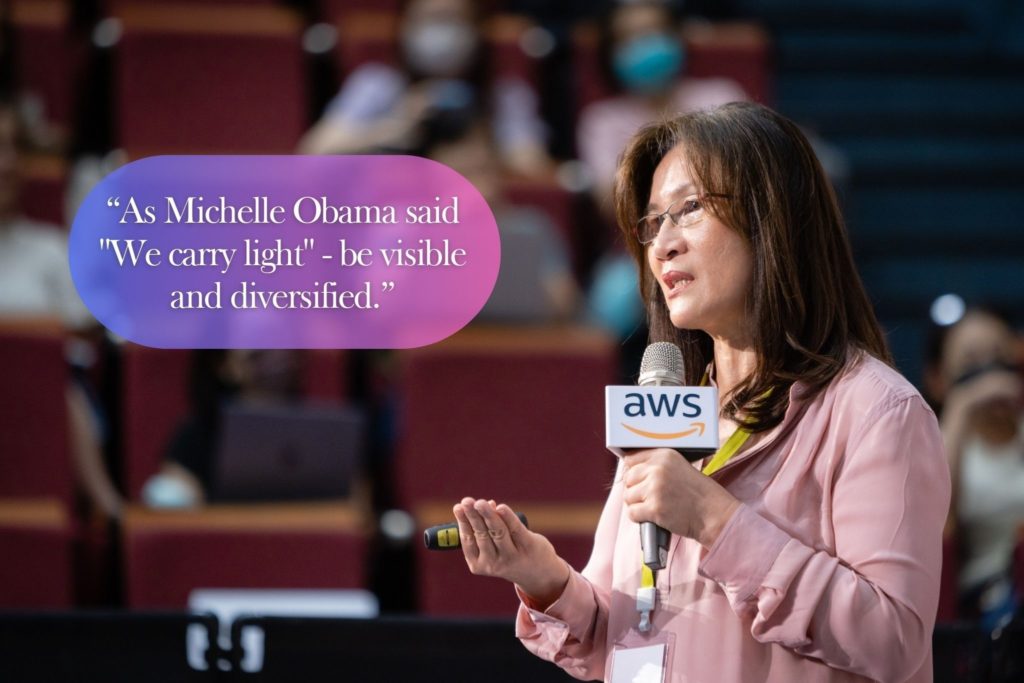
Cynthia Chyn shared the efforts AWS has made in pursuit of ESGs and quoted a famous saying from Michelle Obama to encourage the attendees.
1
In her presentation, Eva Leihener-Stefan said that her company’s head office in Taiwan, located in Taipei 101, was the first to commit to using green energy and other companies have since followed their lead. The office also has an eco-design that encourages green habits. For example, employees are not given individual rubbish bins, which not only encourages them to recycle but also to get up regularly to stretch their legs and interact with their colleagues, both of which are beneficial to their health. The company has developed a water saving hose for hair stylists and a smart make-up device to enable physically challenged people to apply makeup. In addition, the company is constantly upgrading its products with a goal to make them and their packaging completely nature based. The company has also introduced an upcycling programme for product containers with incentives for customers to return containers for upcycling into useful new products. The company’s employees volunteer in projects to clean up natural areas and protect endangered species. The company also offers employment to mentally and physically challenged people. The speaker said that she is especially proud of her company’s efforts to promote and develop female scientists and help employees maintain a good work-life balance.
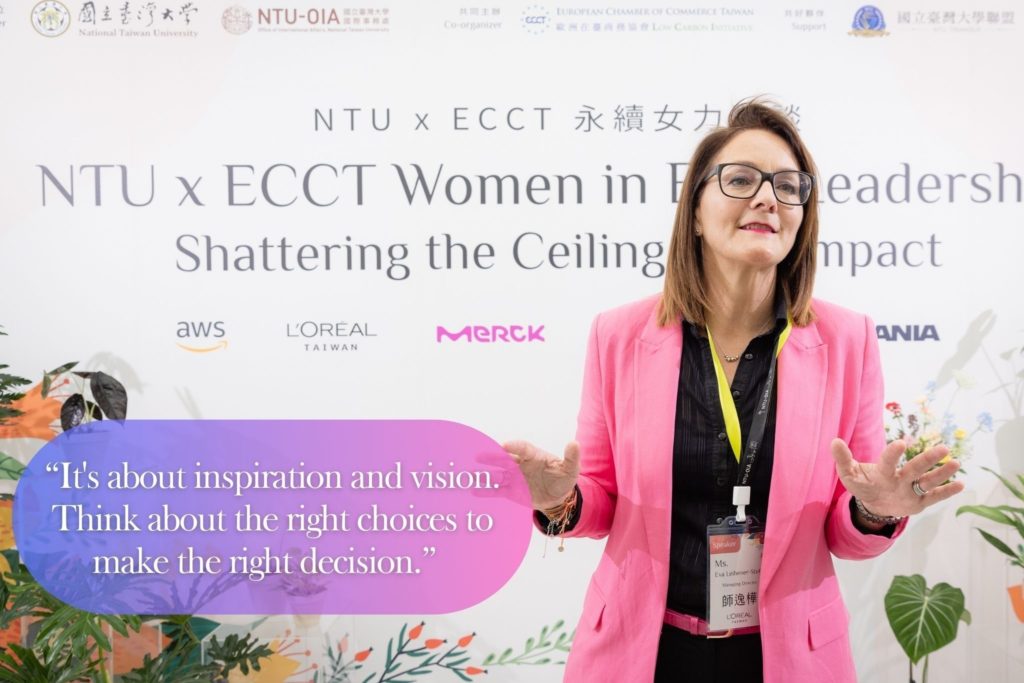
Eva Leihener-Stefan shares how L'Oreal Taiwan implements ESGs in various ways and encourages the attendees to think about the right choices to make the right decision.
1
In her presentation, Boon Huey Ee said that her company is committed to human progress, creating sustainable value chains and reducing its ecological impact. It has pledged to reach carbon neutrality by 2040. She spoke about Taiwan’s extremely low birth rate and ageing population, which will have profound implications for the workforce, economy and society. As the population shrinks, the dependency ratio will place an increasing burden on ever fewer number of workers. While the reasons for the falling birth rate are numerous and complex, including the financial burden and social expectations of women, there is more the government and companies can do to encourage young people to raise children. For companies, they can help to reduce work-life conflicts by making their work policies and workplace environments more family friendly. The speaker is one of the founding members of the ECCT’s Family Friendly Alliance, which has been set up to encourage public private partnership and cooperation and the adoption of family friendly policies by the government and corporations.
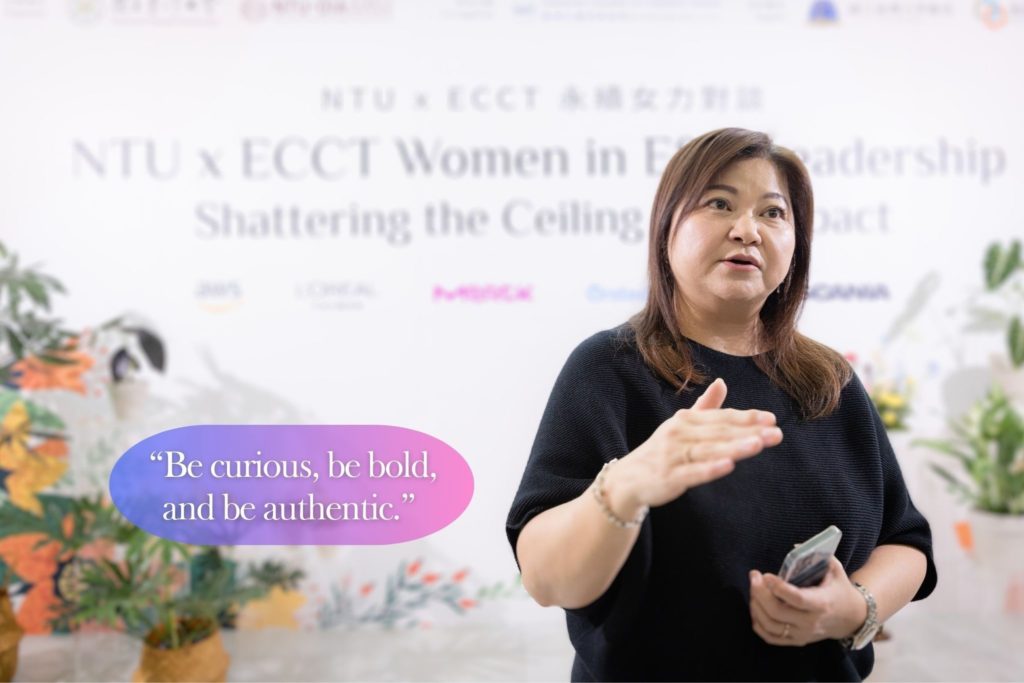
Boon Huey Ee highlights the profound implications of Taiwan's extremely low birth rate and aging population and suggests actions that companies can take to address these serious issues.
1
In her presentation, Christy Wang spoke about her company’s transformation from reliance on fossil fuels to 100% focus on renewable energy, including wind energy, bioenergy, hydrogen and green fuels. In Taiwan, the company has already installed 97 offshore wind turbines and is on track to install 1.8GW of offshore wind energy capacity by 2025, enough to power two million homes. The company employs and trains hundreds of workers. It has a goal to have a net positive impact on biodiversity by 2030 and make its entire value chain carbon neutral by 2040. To do so it is working on improving designs and increasing circularity in its turbine components and materials. To increase biodiversity, the company is experimenting with planting coral species on its turbine foundations with a view towards creating new coral and marine ecosystems on wind farms.
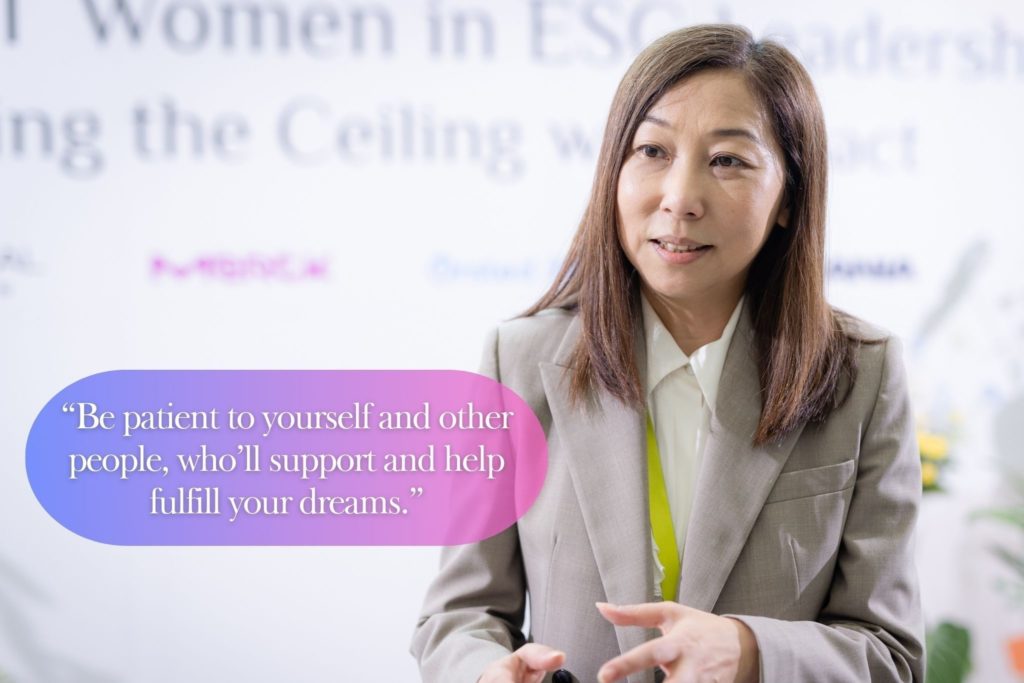
Christy Wang mentions Ørsted Taiwan has made various efforts and plans in pursuing ESG and actively seeks ways for making a positive impact on biodiversity through industrial activities.
1
In her presentation, Michaela Boye said that sustainability is at the core of her company’s strategy, which has set science-based targets based on the Paris agreement. The company is aiming for a 50% EV product mix by 2030 and to be fully carbon neutral by 2040. In the meantime, it is working on increasing the fuel efficiency of its internal combustion vehicles. Last year, the first EV heavy vehicles were delivered to Taiwan but electric is not the only solution for heavy vehicles. Alternative fuels, such as hydrogen and vehicles run on fuel converted from waste also have potential. Besides the fuel/energy source, making vehicles more aerodynamic is important to reduce energy usage. Much more could also be done to improve fleet, logistics and route management to optimise the amount of travel and reduce unnecessary travel. Another area where fuel can be saved is in the driving habits and techniques. Scania provides special training for drivers to help them reduce their fuel consumption. The speaker noted that, as a Swedish company, it practices a collaborative rather than top-down style of leadership involving everyone. While this takes longer in the planning phase, the advantage is that, by incorporating feedback and getting everyone’s buy-in in the early stages, the implementation phase tends to go much more smoothly.
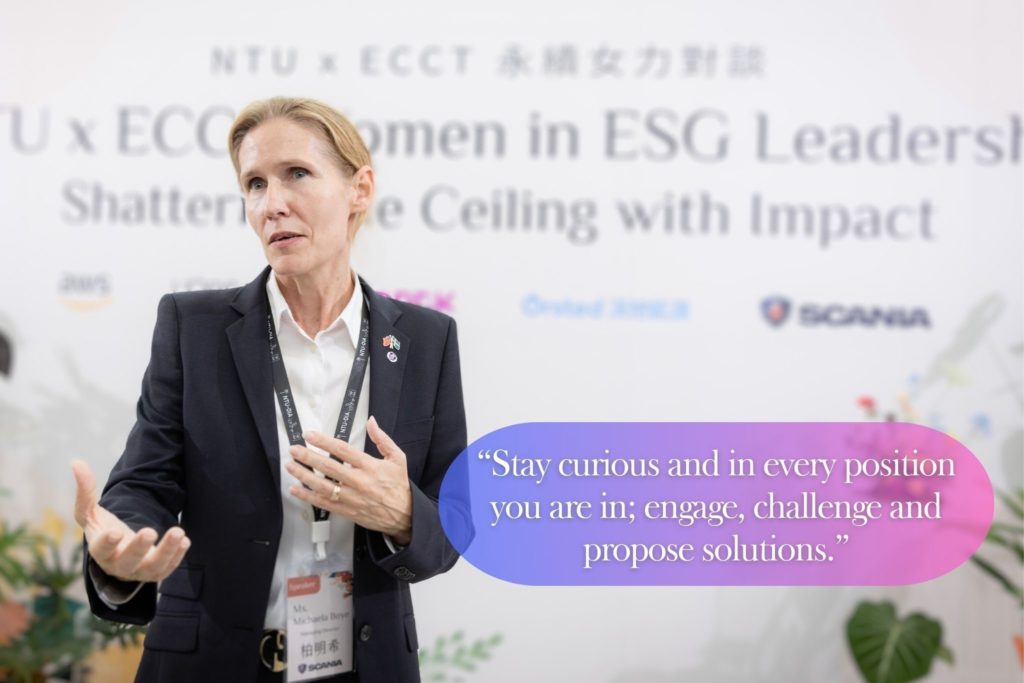
Michaela Boye mentions that Scania's core strategy is sustainability, which is reflected in the company's automotive products, fuels, fleet management, and driver training.
1
In the Q&A session, speakers answered questions on their various ESG programmes as well as offering career advice to students who were a major part of the audience. Panellists noted that women are much more represented now than in previous decades in most professions and companies are paying more attention to the needs of women. Although there are still many challenges facing women in the workplace, it is possible for women to have both a successful career and family life. While it is sometimes awkward for women to work in professions that are dominated by men, speaking up and being assertive can help to gain the trust and respect of colleagues. Following the conclusion of the Q&A, which went for more than half an hour over time, the panelists stayed behind to chat with and answer questions from students.
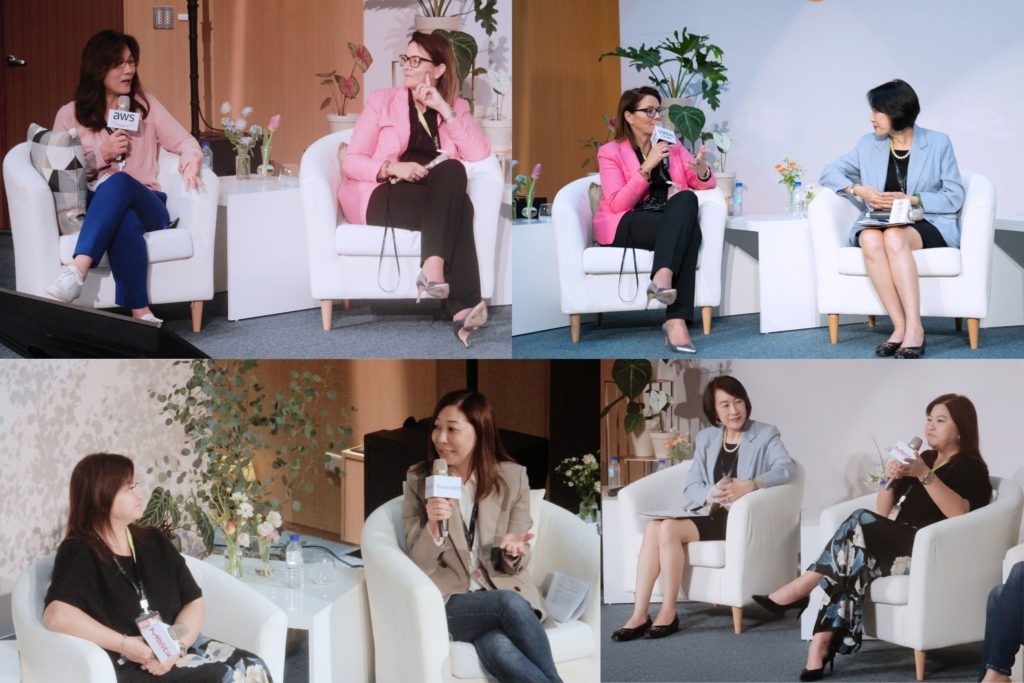
During the panel discussion, the event host and the speakers engaged in a lively and meaningful dialogue about ESG and gender issues.
1
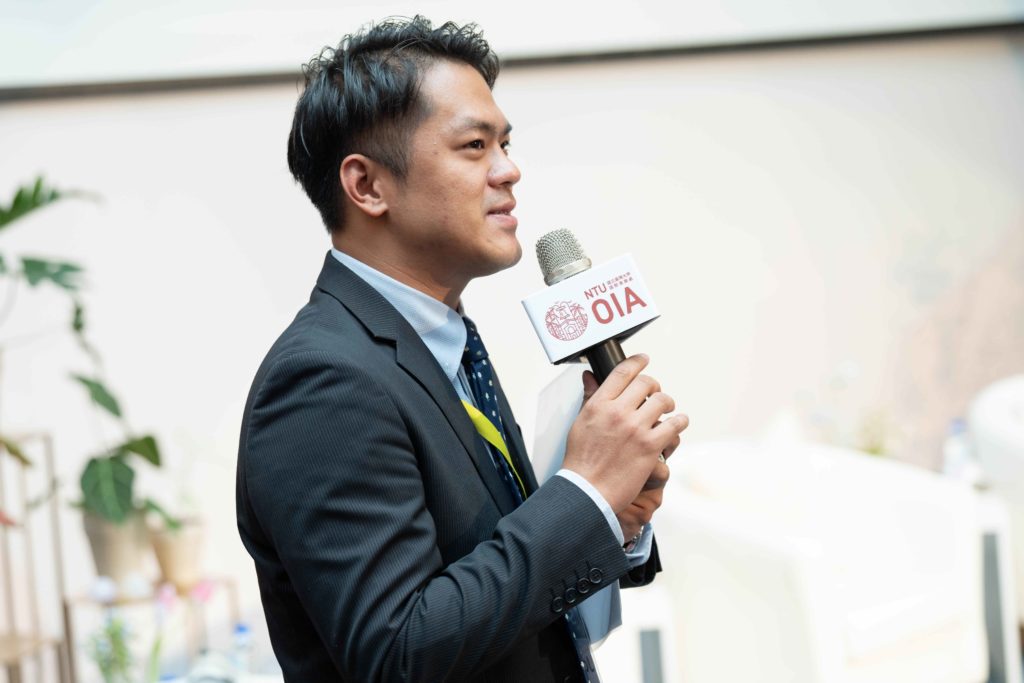
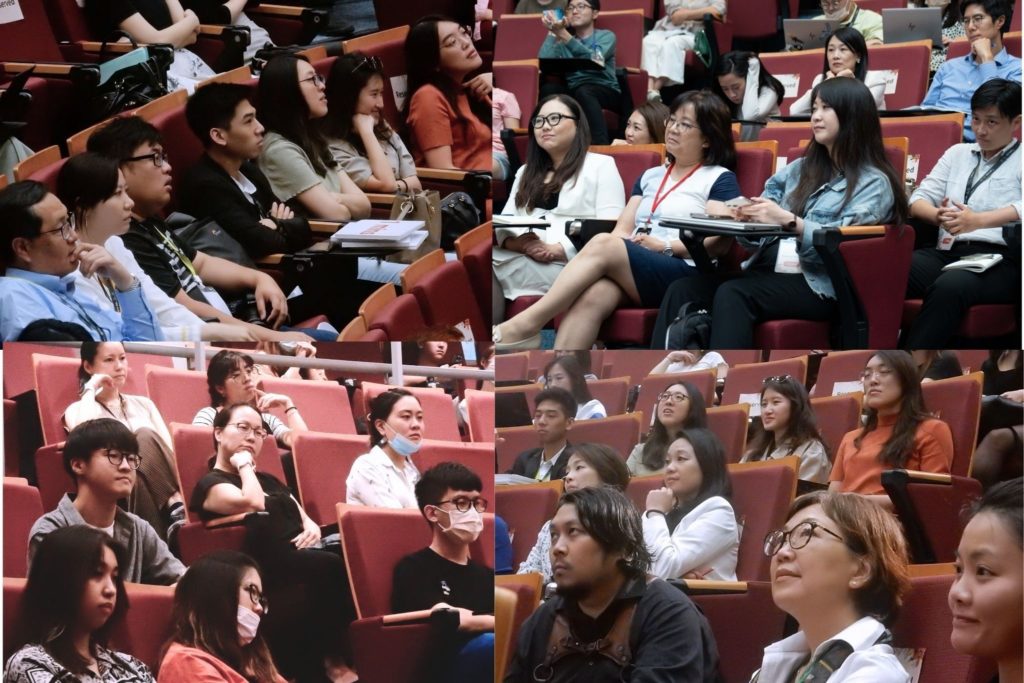
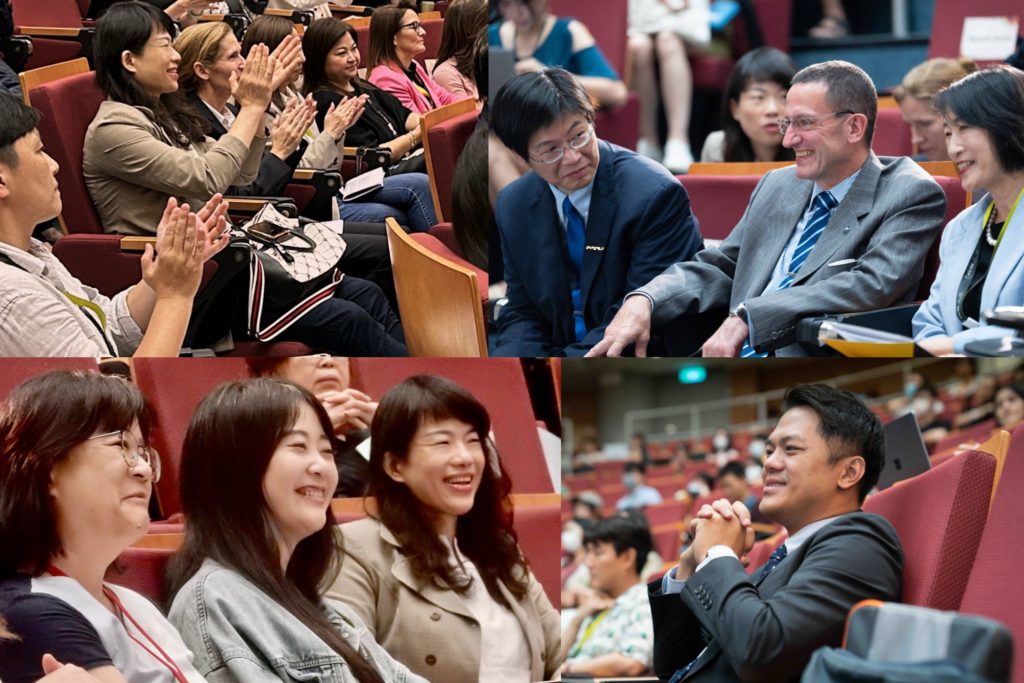
Around 200 guests from industry and academia join the event. They had a wonderful and meaningful time.
1
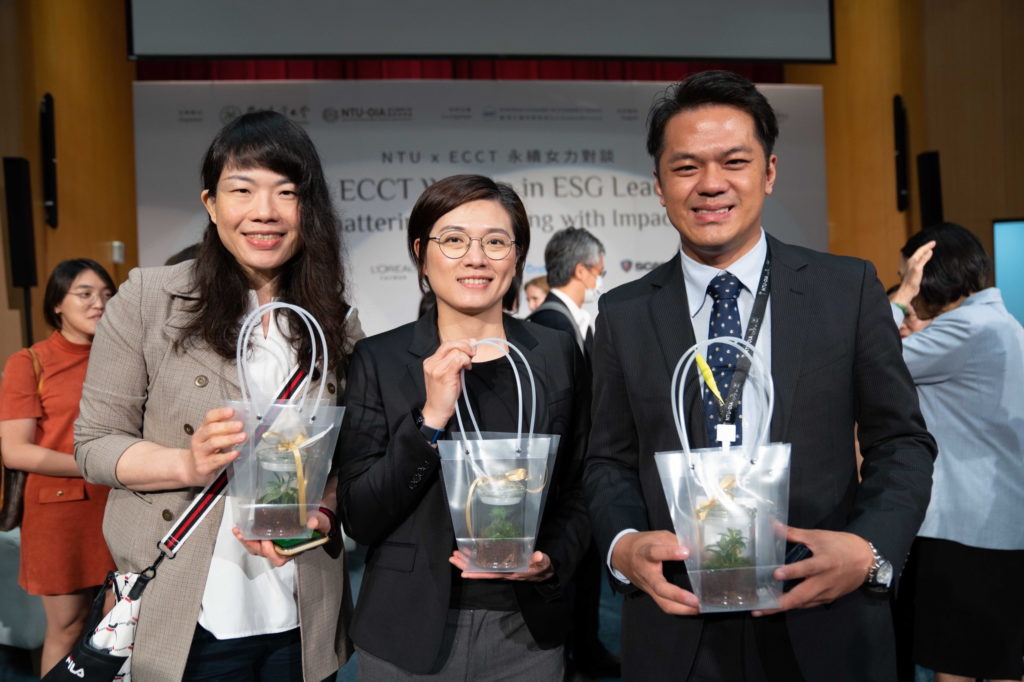
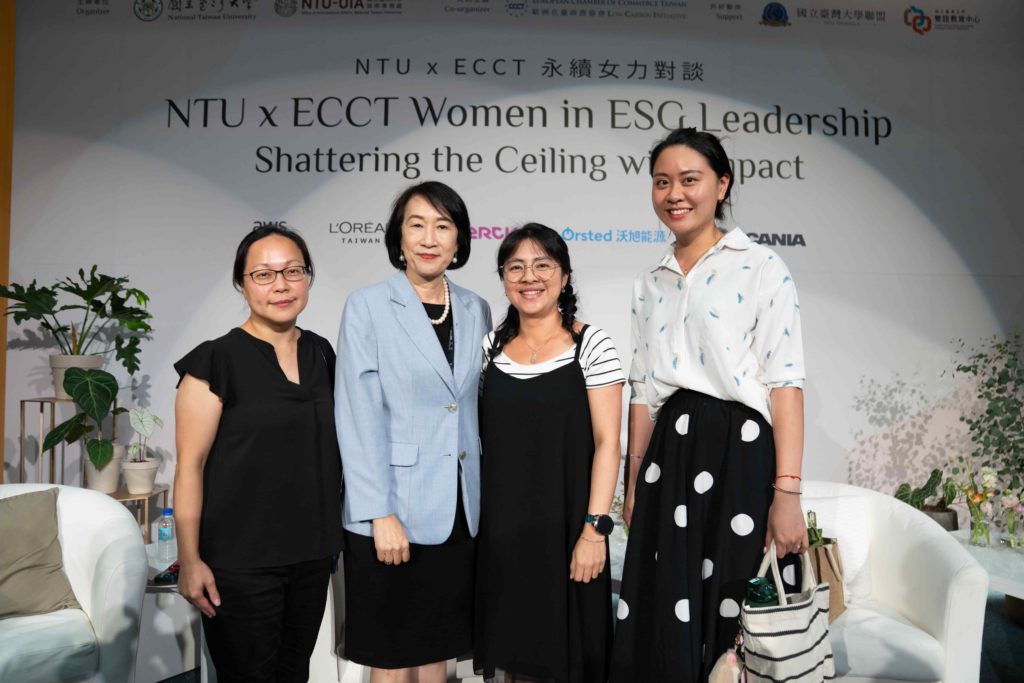
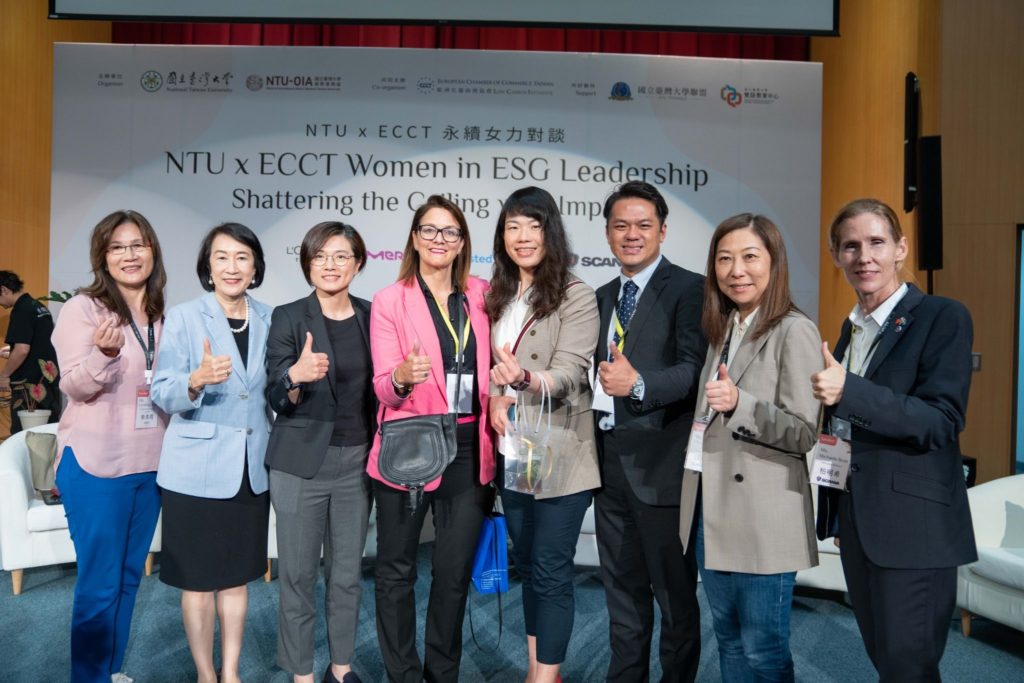
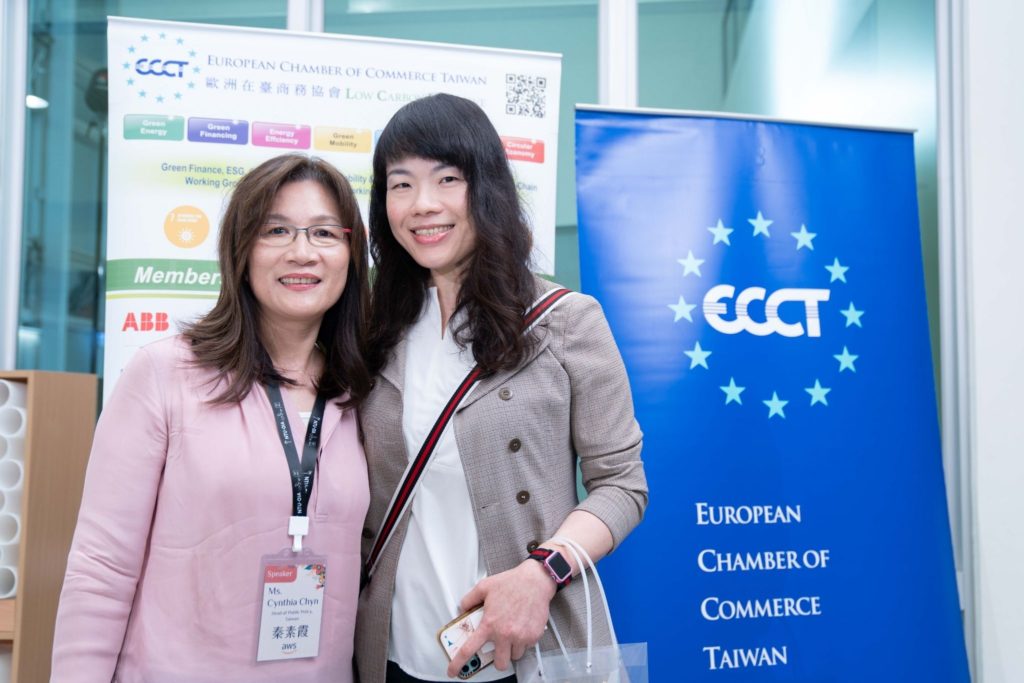
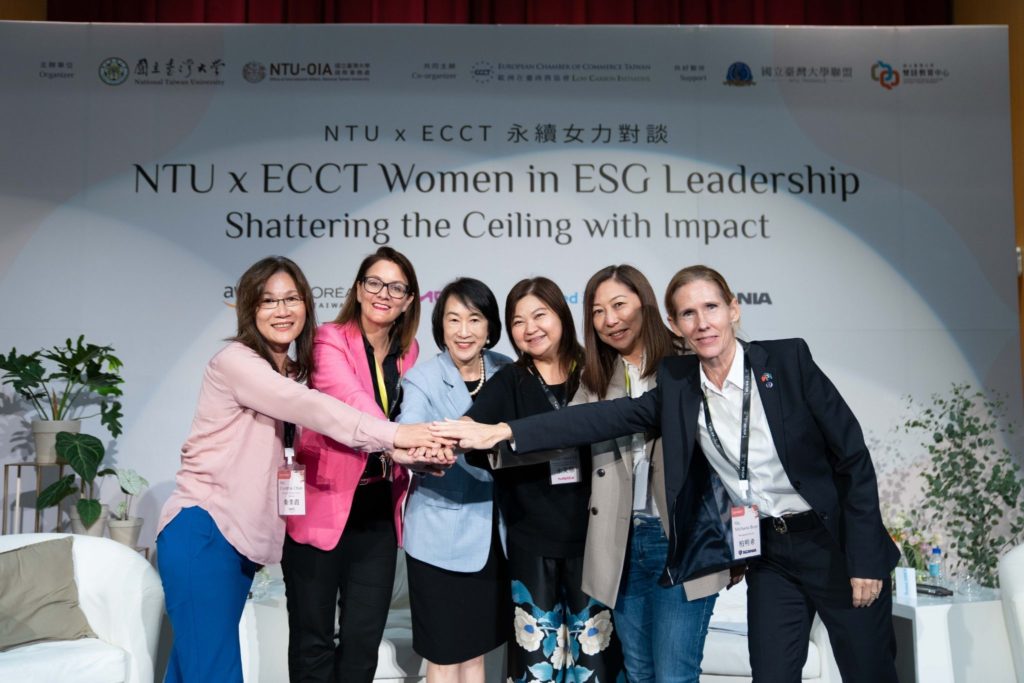
After the event, the host and speakers interacted enthusiastically with industry professionals, students, and faculty members in attendance.
